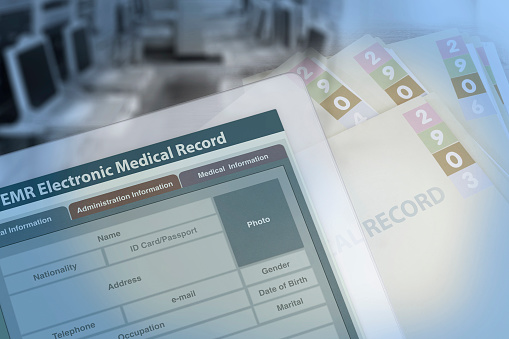
Electronic medical records (EMRs) store patient data and information electronically and are essential parts of modern health care. They can help streamline data management and documentation, allowing physicians to access patient data wherever they are.
Unlike paper charts, an EMR is usually customized to the needs of a particular specialty. For example, a pediatric EMR will contain templates useful for doctors who work with children, while a cardiology EMR will contain templates for cardiovascular patients. Besides being streamlined, specialty specific EMRs may include clinical decision support and ancillary services designed to fit a specific group of physicians.
EMR Improving Performance and Efficiency of Health Care Providers
Unlike paper-based medical records, EMRs allow physicians to access patients’ entire medical history at their fingertips. This helps prevent data loss and facilitates information management among providers and departments. The EMR supports horizontal integration and streamlined communication between team members. To take advantage of the advanced functionalities of an EMR, healthcare providers must adopt cultural changes at the practice level, such as a change in behavior norms and compacts.
The number of physicians using EMRs varies across specialties and regions, with the number of pediatricians in the lowest. However, more EMR users report that the program has improved their quality of care. It has also increased e-mail and telephone communication, which is vital to providing patient-centric care. The use of an EMR is correlated with an increase in patient-centered communication, resulting in reduced office visits and improved overall productivity.
While the traditional authority and revenue streams may be challenged, EMR developers are developing technologies that can help them improve patient care. In addition, EMRs also provide valuable information to patients, allowing providers to focus on more complex patients.
CONCLUSION
Using an EMR can save time, improve patient safety, and decrease errors. It will enable medical professionals to see more patients, reducing the need to spend time searching for results or reports. The EMR will also simplify the administration of the practice, linking patient records with insurance claims and scheduling. It will help physicians reduce the need for follow-up calls and reduce lost messages.
Several other advantages of EMR include improved access to patient charts, secure communication among providers, and patient-centered workflow. These systems also offer patient-specific reminders and medication error alerts, which can save physicians time and effort.
Get to know more about the advantages of EMR for healthcare workers and where to find the best EMR Philippines as you visit EMR Philippines today!